rust factor crucial to ties: panel
Updated: 2015-10-06 11:01
By Hua Sengdun In Washington(China Daily USA)
|
|||||||||
|
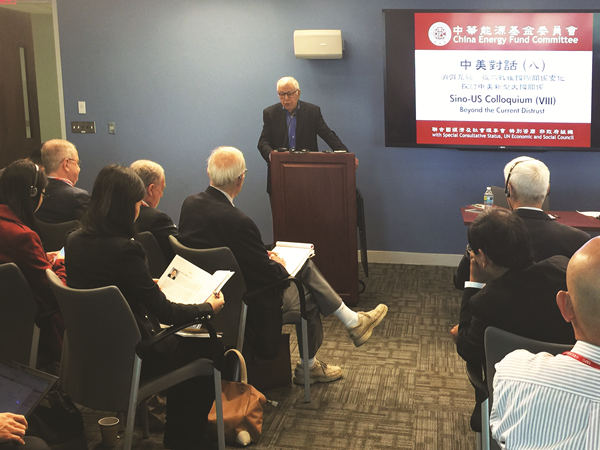 Amitai Etzioni, professor of international aff airs at George Washington University, delivers opening remarks in a colloquium on Monday. Pan Jialiang / For China Daily |
How to get past suspicions between China and the US was the topic of a seminar held by the China Energy Fund Committee in Washington on Monday.
The event at George Washington University was the eighth Sino-US colloquium, themed Beyond the Current Distrust.
"The best lens of clarifying the dynamics of the China-US relationship is the Thucydides Trap, the structural stress that occurs when a rising power threatens to displace a ruling power," said Graham Allison, professor at the John F. Kennedy School of Government at Harvard University.
President Xi Jinping, in a recent speech in Seattle during his state visit to the United States, said that the Thucydides Trap does not exist. However, if major countries repeatedly make strategic misjudgments, they may inadvertently create such a trap for themselves, he said.
"The most essential part of uprooting distrust between China and the US is both of the countries should stop having the worst-case assumption towards each other," said Fred Bergsten, a member of the President's Advisory Committee on Trade Policy and Negotiations.
"China will not dominate Asia," he said. "Because there are so many rising powers and alliances in the region. More importantly, China is a more inward-looking country whose focus is not the expansion of territory."
"Pressing domestic problems are the top priorities for the Chinese government. We have about 7 million students who just graduated from university. That equals the population of Washington state. China's disabled population is 83 million, which equals the total population of Germany, according to Pan Zhenqiang, senior adviser to the China Reform Forum.
"Chinese people want to have a better life, not a war," Pan said. "The government will try every means to achieve it. On top of that, we are not living in ancient times; every country is connected," said Wang Xuexian, vice-chairman of the United Nations Association of China.
"Regarding a rising power as a threat is never going to benefit a country because China is not the only rising power," Wang said. "And there are many countries emerging in the international community. You can't control everyone, and it is a time-consuming and money-consuming strategy for a country."
"In the white paper released by the Chinese government, there is no aggressive military action," Bergsten said. "The US shouldn't have the presence of Japan in the Asia-Pacific region.
"Japan is powerful in terms of air force and international influence in this region," he said. "The idea of coming back to Asia and rebalancing policy would be not necessary and workable."
Kurt Campbell, who served as assistant of secretary of state for East Asian and Pacific Affairs, a key architect of the "pivot to Asia" policy, said the stance of the US toward China is dependent on the two major political parties.
- Russian warplanes hit IS targets in Syria
- Senior US envoy to visit Japan, S Korea, China
- Russia, US agree to cooperate in solving Syria crisis: Russian FM
- Iranian President calls Iran deal victory over war
- LatAm experts praise Xi on yuan, globalization
- Evidence found of summertime water flows on Mars: study
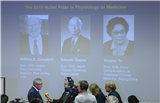
 China wins first Nobel in medicine
China wins first Nobel in medicine-
 Saving Chinese folk songs
Saving Chinese folk songs 
 Candlelight vigil for Oregon shooting victims
Candlelight vigil for Oregon shooting victims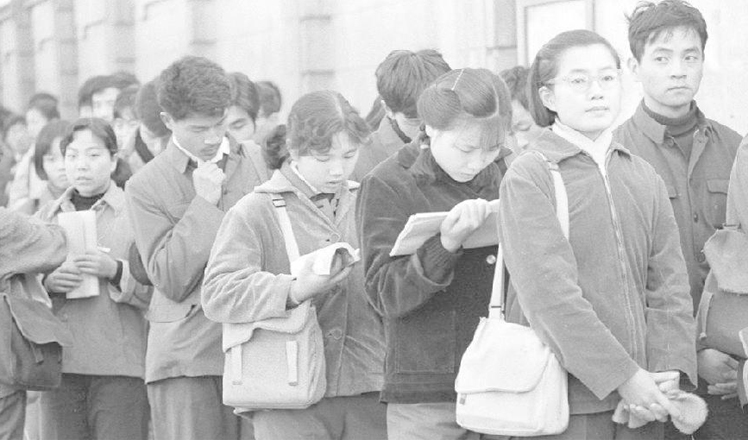
 Chinese people's pursuits in different eras
Chinese people's pursuits in different eras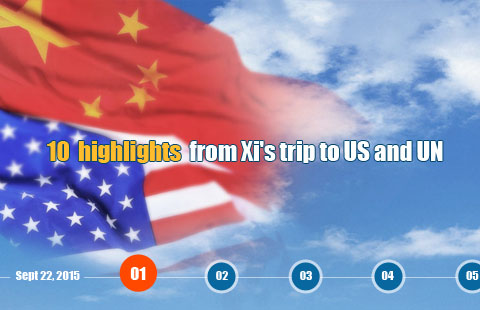
 Ten highlights from Xi's trip to US and UN
Ten highlights from Xi's trip to US and UN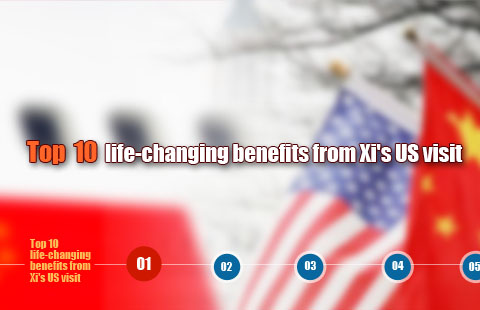
 Top 10 life-changing benefits from Xi's US visit
Top 10 life-changing benefits from Xi's US visit-
 Highlights of President Xi's speeches at UN
Highlights of President Xi's speeches at UN -
 The president's historic journey to the west
The president's historic journey to the west
Most Viewed
Editor's Picks

|

|

|

|

|

|
Today's Top News
Tu first Chinese to win Nobel Prize in Medicine
Huntsman says Sino-US relationship needs common goals
Xi pledges $2 billion to help developing countries
Young people from US look forward to Xi's state visit: Survey
US to accept more refugees than planned
Li calls on State-owned firms to tap more global markets
Apple's iOS App Store suffers first major attack
Japan enacts new security laws to overturn postwar pacifism
US Weekly

|

|








